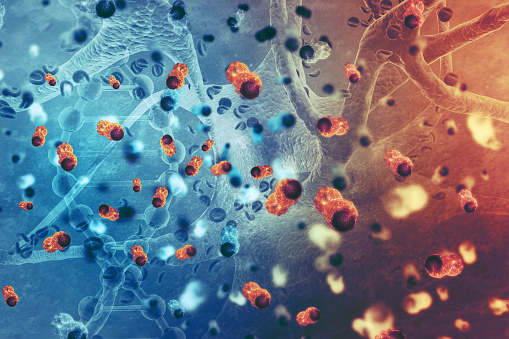What is Blood Health?
Blood health refers to the overall state of well-being of the blood and the components that make up the blood, including red blood cells, white blood cells, platelets, and plasma. Good blood health is essential for maintaining overall health and well-being, as blood plays a critical role in transporting oxygen, nutrients, and hormones throughout the body, as well as removing waste products and fighting infection.
Maintaining good blood health involves several key factors, including:
- A healthy diet: Consuming a balanced diet that is rich in nutrients such as iron, vitamin B12, and folate can help to promote the production of healthy red blood cells and prevent anemia.
- Staying hydrated: Drinking plenty of water can help to maintain the volume of blood in the body and prevent dehydration, which can affect blood viscosity.
- Exercise: Regular exercise can help to improve blood flow and oxygenation of the tissues, as well as help to regulate blood pressure and reduce the risk of chronic diseases such as heart disease and diabetes.
- Managing stress: Chronic stress can affect blood pressure and blood sugar levels, so it’s important to practice stress management techniques such as meditation, yoga, or deep breathing.
- Avoiding smoking and excessive alcohol consumption: Smoking and excessive alcohol consumption can have harmful effects on the blood and increase the risk of certain cancers and chronic diseases.
- Regular check-ups: Regular blood tests and physical exams can help to monitor blood health and identify any underlying conditions or deficiencies.
By following these practices, individuals can maintain good blood health and reduce the risk of complications such as anemia, blood clots, and chronic diseases. It is also important to seek prompt medical attention for any abnormal symptoms or changes in blood health.
Define Blood Health.
Blood health refers to the state of well-being of the blood and its components, including red blood cells, white blood cells, platelets, and plasma. Blood is a vital fluid in the body that plays a critical role in transporting oxygen, nutrients, hormones, and waste products throughout the body, as well as fighting infections and regulating body temperature and pH balance.
Good blood health is essential for overall health and well-being, as poor blood health can lead to a variety of complications and diseases, such as anemia, blood clots, and heart disease. Maintaining good blood health involves a combination of factors, including a healthy diet, regular exercise, staying hydrated, managing stress, avoiding smoking and excessive alcohol consumption, and regular check-ups to monitor blood health and identify any underlying conditions or deficiencies.
By promoting good blood health, individuals can improve their quality of life, reduce their risk of chronic diseases, and prevent potential complications.
How to Make Blood Strong?
Here are some ways to help promote good blood health and make your blood stronger:
- Eat a healthy diet: Consuming a balanced diet that includes plenty of nutrient-rich foods such as leafy greens, whole grains, lean proteins, and foods rich in iron, vitamin B12, and folate can help to promote the production of healthy red blood cells and prevent anemia.
- Stay hydrated: Drinking plenty of water can help to maintain the volume of blood in the body and prevent dehydration, which can affect blood viscosity.
- Exercise regularly: Regular exercise can help to improve blood flow and oxygenation of the tissues, as well as help to regulate blood pressure and reduce the risk of chronic diseases such as heart disease and diabetes.
- Manage stress: Chronic stress can affect blood pressure and blood sugar levels, so it’s important to practice stress management techniques such as meditation, yoga, or deep breathing.
- Avoid smoking and excessive alcohol consumption: Smoking and excessive alcohol consumption can have harmful effects on the blood and increase the risk of certain cancers and chronic diseases.
- Get enough sleep: Getting adequate sleep can help to regulate hormone levels and promote healthy blood cell production.
- Regular check-ups: Regular blood tests and physical exams can help to monitor blood health and identify any underlying conditions or deficiencies.
By following these practices, individuals can promote good blood health and make their blood stronger, reducing the risk of complications and promoting overall health and well-being. It is important to consult with a healthcare professional if you have concerns about your blood health or if you experience any abnormal symptoms.



